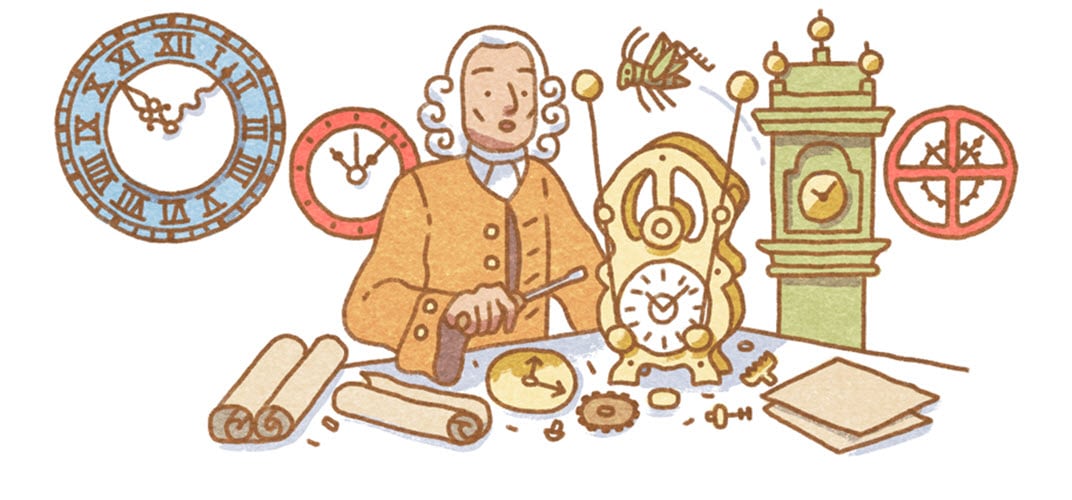John Harrison: Time’s Unsung Hero and the Quest for Longitude

Image Courtesy: Google Doodle
John Harrison (3 April 1693 – 24 March 1776) was a self-educated English carpenter and clockmaker who invented the marine chronometer, a long-sought-after device for solving the problem of calculating longitude while at sea.
Harrison’s solution revolutionized navigation and greatly increased the safety of long-distance sea travel. The problem he solved had been considered so important following the Scilly naval disaster of 1707 that the British Parliament was offering financial rewards of up to £20,000 (equivalent to £3.35 million in 2023) under the 1714 Longitude Act, though Harrison was never fully able to receive these rewards due to political rivalries.
Life and Career
John Harrison was born in Foulby, Yorkshire, England, on 3 April 1693. He was the eldest of five children and grew up on a farm. He received little formal education, but he showed an early interest in clocks and mechanical devices. At the age of six, he reportedly built his first clock using only wood and a few simple tools.
Harrison served as an apprentice to his carpenter father and later became a skilled carpenter and joiner himself. He continued to experiment with clocks and developed a reputation as a talented clockmaker.
In the 1720s, Harrison began working on the development of marine chronometers, which were needed to accurately determine longitude at sea. At the time, sailors could determine their latitude by measuring the angle of the sun or stars, but determining longitude was much more difficult. The British government offered a large cash prize to anyone who could develop an accurate marine chronometer, and Harrison dedicated much of his life to this pursuit.
Harrison’s first chronometer, known as H1, was completed in 1735. It was a large, heavy instrument and was not very accurate, but it showed promise. He continued to refine his design and eventually developed a series of chronometers, including H2, H3, and H4, which were smaller, more accurate, and easier to use.
In 1761, Harrison was awarded a prize of £20,000 by the British government for his work on marine chronometers. This was a significant sum of money at the time, and it was a testament to the importance of his contributions to navigation. John Harrison died on 24 March 1776, at the age of 82.
Award and Legacy
He is remembered as one of the most important clockmakers in history, and his work on marine chronometers revolutionized navigation and made long-distance sea travel much safer. His chronometers were used by the British navy for more than a century, and they played a critical role in the growth of the British Empire.
In recognition of his contributions, Harrison was awarded the Copley Medal by the Royal Society in 1749 and was made a Fellow of the Society in 1767. He is also the subject of several books and documentaries, including “Longitude,” by Dava Sobel, which tells the story of his life and work. The original Harrison chronometers are on display at the Royal Observatory in Greenwich, London, and they continue to fascinate and inspire visitors from around the world. On 3 April 2018, Google celebrated John Harrison’s 325th Birthday with a doodle.
Observer Voice is the one stop site for National, International news, Sports, Editor’s Choice, Art/culture contents, Quotes and much more. We also cover historical contents. Historical contents includes World History, Indian History, and what happened today. The website also covers Entertainment across the India and World.

